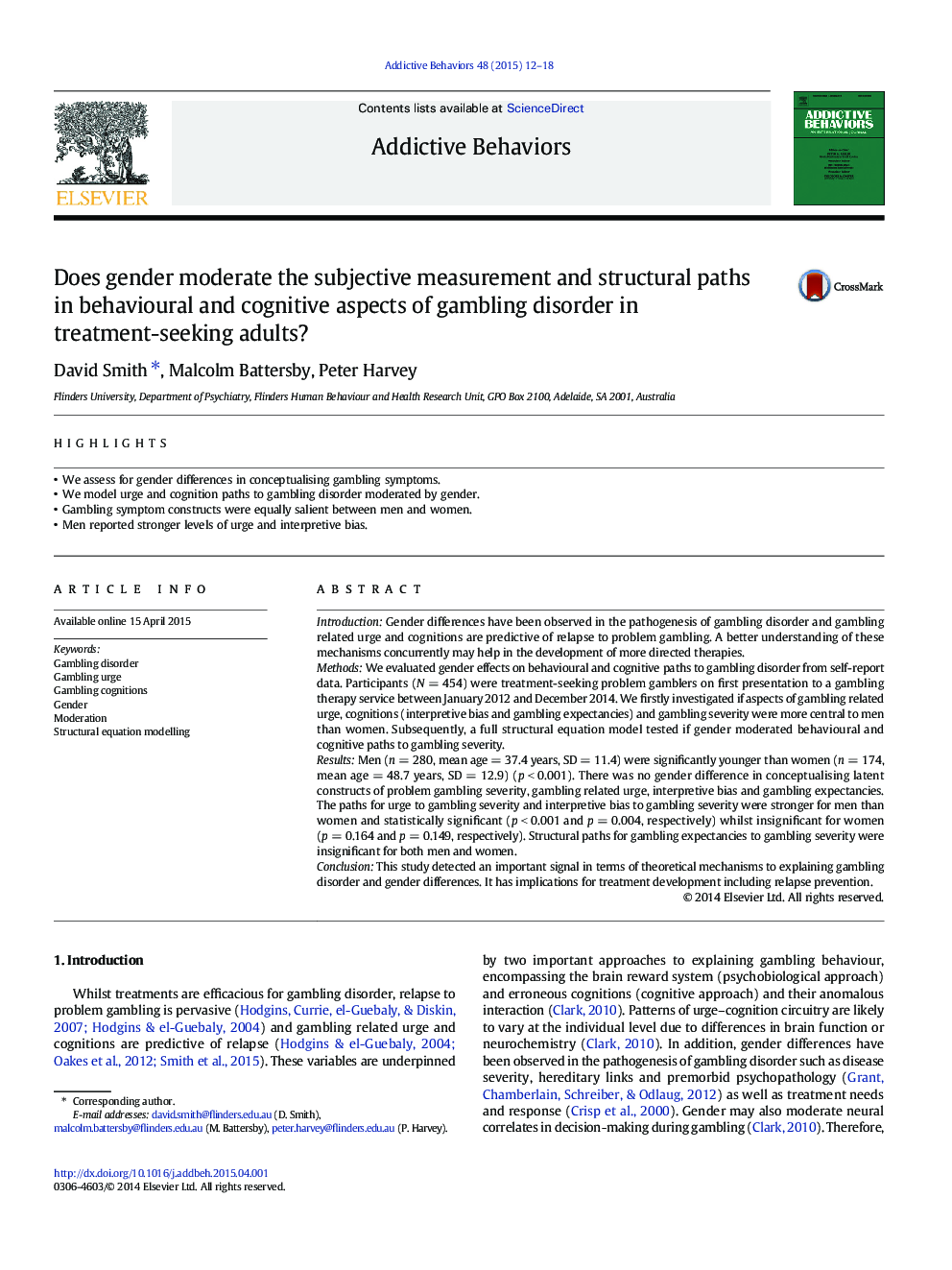| Article ID | Journal | Published Year | Pages | File Type |
|---|---|---|---|---|
| 898669 | Addictive Behaviors | 2015 | 7 Pages |
•We assess for gender differences in conceptualising gambling symptoms.•We model urge and cognition paths to gambling disorder moderated by gender.•Gambling symptom constructs were equally salient between men and women.•Men reported stronger levels of urge and interpretive bias.
IntroductionGender differences have been observed in the pathogenesis of gambling disorder and gambling related urge and cognitions are predictive of relapse to problem gambling. A better understanding of these mechanisms concurrently may help in the development of more directed therapies.MethodsWe evaluated gender effects on behavioural and cognitive paths to gambling disorder from self-report data. Participants (N = 454) were treatment-seeking problem gamblers on first presentation to a gambling therapy service between January 2012 and December 2014. We firstly investigated if aspects of gambling related urge, cognitions (interpretive bias and gambling expectancies) and gambling severity were more central to men than women. Subsequently, a full structural equation model tested if gender moderated behavioural and cognitive paths to gambling severity.ResultsMen (n = 280, mean age = 37.4 years, SD = 11.4) were significantly younger than women (n = 174, mean age = 48.7 years, SD = 12.9) (p < 0.001). There was no gender difference in conceptualising latent constructs of problem gambling severity, gambling related urge, interpretive bias and gambling expectancies. The paths for urge to gambling severity and interpretive bias to gambling severity were stronger for men than women and statistically significant (p < 0.001 and p = 0.004, respectively) whilst insignificant for women (p = 0.164 and p = 0.149, respectively). Structural paths for gambling expectancies to gambling severity were insignificant for both men and women.ConclusionThis study detected an important signal in terms of theoretical mechanisms to explaining gambling disorder and gender differences. It has implications for treatment development including relapse prevention.
